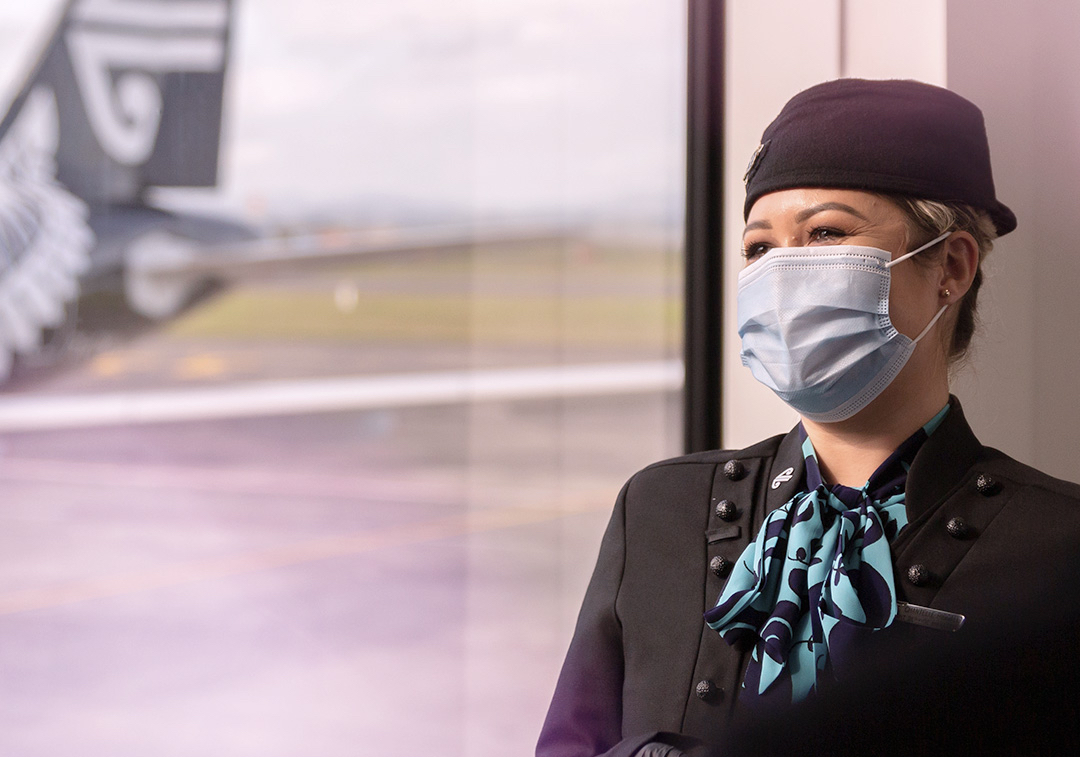
Air New Zealand has started an internal investigation after a flight attendant was accused of breaking Level 3 lockdown restrictions by taking a flight from Auckland to Wellington in order to visit a friend. Auckland was placed under Level 3 of New Zealand’s four-stage COVID-19 alert system last week after community transmission of the virus was detected in the country for the first time in over 100 days.
Under Level 3 restrictions, people are not allowed to travel into or out of Auckland except for very limited reasons. The restrictions will remain in force until at least August 26.
The flight attendant at the centre of the investigation is said to have told her colleagues working the flight that she was deadheading to Wellington for work but the suspicious crew checked the passenger manifest and discovered she was travelling on a leisure ticket.
Air New Zealand’s general manager for cabin crew, Leeanne Langridge confirmed that an investigation into the August 15 incident was underway but that the airline could not comment any further while investigations were still taking place.
The investigation comes as the airline faces renewed pressure over its health protection measures despite Air New Zealand’s chief executive Greg Foran confirming only days ago that there hadn’t been a single reported case of COVID-19 within the airline since the start of the pandemic.
Critics, however, would like to see Air New Zealand implement the same measures it adopts for ‘high risk’ international flights on ‘medium risk’ flights as well. Currently, San Francisco and Los Angeles are considered High Risk locations, while Tokyo Narita, Hong Kong and Shanghai are classed as Medium Risk.
On flights to the United States, flight attendants are not allowed to leave their layover hotel and are forbidden from using the hotel’s gym or pool areas. Only food delivered to the room can be consumed and on their return, crew must go into quarantine for 48-hours before taking a COVID-19 test. They must then self-isolate until the results are returned.
During layovers to Medium Risk locations, flight attendants are allowed to leave their hotel for a maximum of one hour in every 24 hour period.
In addition, flight attendants must wear a face mask and gloves while walking through airport terminals and whenever they are interacting with passengers onboard. Domestic Airbus A320 trained crew have also been segregated from international crew.
“It’s fair to say our pilots and cabin crew have borne the brunt of the impact of Covid-19, on a very personal level,” Foran recently commented. “This has tremendous impact on their everyday life and wellbeing. As does having to self-isolate back at home upon returning from higher-risk destinations. This causes disconnection from family, friends and everyday activities.”
Related
Mateusz Maszczynski honed his skills as an international flight attendant at the most prominent airline in the Middle East and has been flying ever since... most recently for a well known European airline. Matt is passionate about the aviation industry and has become an expert in passenger experience and human-centric stories. Always keeping an ear close to the ground, Matt's industry insights, analysis and news coverage is frequently relied upon by some of the biggest names in journalism.







